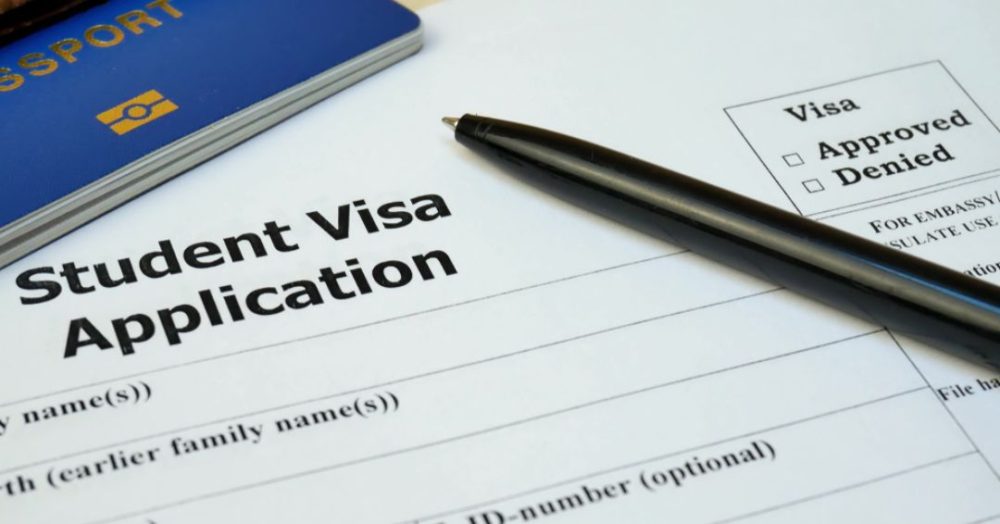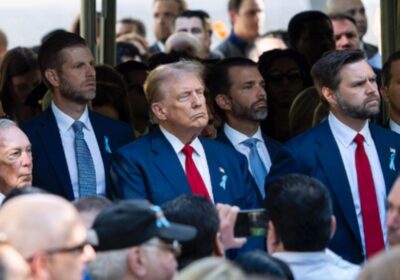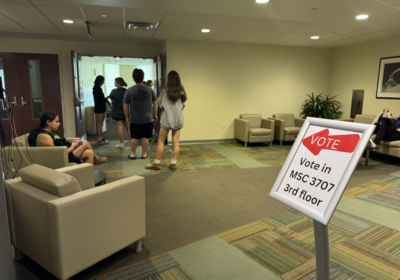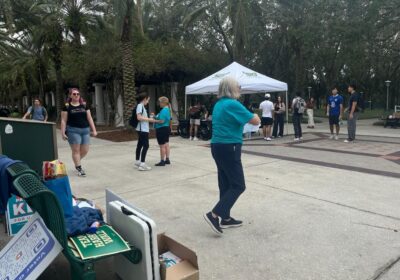COVID-19 travel restrictions, visas create uncertainties for future international students and graduates

The future travel arrangements for USF’s international students are up in the air as U.S. embassies around the world remain closed and restrictions on travel keep extending due to the coronavirus (COVID-19) outbreak.
Dean of Admissions Glen Besterfield said getting accepted into USF is not the biggest worry for most incoming international students.
“Most internationals are admitted and they’ve been admitted for some time, just like our domestic students,” Besterfield said. “The issue really is whether they can get a student visa to enter the U.S. Most consulates and embassies will reopen to issue student visas.
“We do not know when that will really occur, so we’re waiting to see how that is going to impact our freshman class. I think every university in America would say that’s the big elephant in the room right now. We really just don’t know if an offshore international student will be able to get a visa.”
Approximately 10 percent of the freshman class will be international students, both onshore and offshore, according to Besterfield.
While onshore students — those who currently live in the U.S. — probably won’t be affected by the embassy closures, offshore students still need to figure out how the upcoming months will unfold as the new academic year approaches.
As U.S. embassies around the world have either closed indefinitely or suspended the issue of visas until further notice, incoming students face a problem when applying for a student visa.
“We are waiting for embassies and consulates to open so that students can proceed with visa requirements,” Interim Vice President for USF World Kiki Caruson said.
“We also have to abide by any national travel advisories. So international students could be affected by travel guidelines in their home countries and guidelines that may be in effect in the fall for the United States. We don’t know what those will be, but we will all be bound by whatever those rules are.”
When deciding to study in the U.S., international students must apply for an F-1 student visa which grants them the right to study in an educational institution as a full-time student.
Before getting an F-1 visa, however, students must apply for an I-20, in which they provide documentation proving they have the financial resources to attend a university in the U.S., according to Besterfield. Once the I-20 is issued, students can go to their designated U.S. embassy to be issued an F-1 student visa.
Another type of student visa is the J-1, which is given to exchange visitors. The J-1 visa is issued for nondegree-seeking students and students sponsored by U.S. government agencies, according to the Office of International Services website.
Most international students obtain visas for the fall semester between May and July, according to Caruson.
Despite the U.S. embassies being closed, Besterfield said USF is still processing I-20s for the incoming class.
“We are still processing all our international students as we always would, the uncertainties just surround whether the embassies and consulates will open for student visas,” Besterfield said.
Whether the U.S. embassies around the world will open any time soon is still uncertain, but there have been discussions on possible solutions in case a student is unable to get a visa.
In case the U.S. embassies remain closed and travel bans are not lifted, one option would be the delivery of remote instruction.
While there hasn’t been any official announcements yet from the university administration, Caruson doesn’t overlook the possibilities.
“There will be options for international students who are unable to travel. I cannot tell you at this point exactly what each of those options will look like, but our international students will have options for continuing their pathway with USF, even if they’re unable to travel,” Caruson said.
The decision on course delivery to international students is not made through USF World, though Caruson said that students might be offered options in case they are unable to travel abroad.
“So it could be that if we are open for business and in some face-to-face courses, that some courses might be hybrid, with a face-to-face component and an online component, or it could be that students are in face-to-face classes, but those who are unable to travel would have an option to engage online,” Caruson said.
“We don’t know at this point what that looks like as those decisions haven’t been solidified or finalized. And those decisions would be outside the scope of just USF World.”
Current international students had to make the hard decision to either stay in the U.S. or return to their home countries before travel bans were issued.
As of fall 2019, the international student population at USF consisted of 4,620 students from 141 different countries. Around 80 percent of these students, however, have remained in the U.S., according to Caruson.
If a student is graduating this May, that might change the status of their visas. Students can extend their documents by completing an Extension E-Form in iStart — the portal for international students.
Once international students graduate, F-1 visa students have a grace period of 60 days while J-1 visa students have 30 days.
Since their student visas could expire before the August in-person commencement, students will need to have an appropriate visa status to attend the ceremony.
If they choose to remain in the U.S., then students will need to apply for either OPT or enter a new level to continue with their F-1 status, according to the Office of International Services website. If a student is outside the U.S., then they will need to obtain a visitor’s visa.
As a way to connect with all international students, Caruson said USF World is hosting virtual events on social media, including movie nights, virtual international coffee hours and Netflix parties.
“We are reaching out through events for newly admitted students and holding special virtual events for interested students and admitted students,” Caruson said. “So, [we are] communicating information as it becomes available about what to expect for summer and what to expect for fall.”
Caruson hopes the consulates and embassies will not remain closed for much longer and international students will be able to step foot on campus as they begin their college career.
“The most important point is we all want to get back to business as usual — we want to be able to welcome students to campus,” Caruson said. “We want students in the fall to have the full USF experience.
“But if it’s for health or safety reasons, we are not able to do that. Let’s say universities are not able to open for fall as we have in the past, then we will definitely have in place options for students to begin their journey with USF or continue on a path to graduation.”







